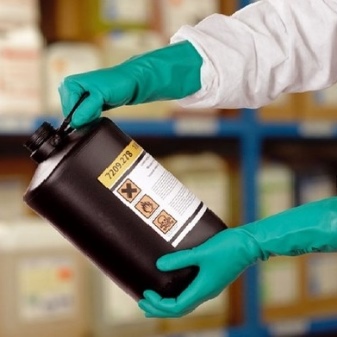Features of work gloves

In any production, most of the processes are mechanized, but at the same time there are many works that have to be done by hand, and this requires gloves. The features of the gloves differ depending on the activities for which they are used.


Primary requirements
Almost any work at industrial enterprises, construction, railway facilities, warehouses, shops and other organizations requires work clothing, including work gloves. These attributes have their own technical parameters depending on where they are applied. For example, an electrician's overalls will differ from a builder's kit. But in both cases, gloves are provided in order to provide convenience and comfort during work. In addition, you can safely perform any necessary functions without fear of getting dirty.
Work gloves are designed to protect your hands not only during the work process, but also during gardening or household work.


The main requirements for such products are as follows:
- they must be strong so that in the event of heavy loads, friction or other influences, their integrity is not compromised;
- density also plays an important role, since in many works there is a risk of injuring your hands - scratching, hitting, piercing, burning;
- they should be comfortable - no stiffness of movement or discomfort, in certain cases the fabric should be breathable so that your hands do not sweat and do not get wet.

Species overview
Each type of work involves its own type of gloves, which will be more comfortable and safer.
Cotton and knitwear with PVC inserts are capable of protecting against mechanical damage. Combined options with dotted splashes make the gloves durable and elastic at the same time. Such types will be convenient for working with glass, therefore, they will be useful to the glazier.
For precise work, fabric specimens are best suited, and rather thin ones.

Latex gloves will help prevent chemical burns and exposure to harmful substances. For example, they can be used when working with liquid nitrogen, chemical reagents in various laboratories. In addition, a special coating provides them with an anti-slip effect. Therefore, they are quite suitable for working with a rope.


Nitrile gloves will protect you from hot surfaces and minor injuries. Reusable nitrile-lined cotton products are particularly durable and heat-shielding. But there are also very thin disposable gloves. They even allow you to work with paper, since you hardly feel it on your hands.
Neoprene products will protect against moisture, chemicals, oils. Suitable for mechanics. The gloves are durable and wear resistant.

Split leather gloves are made of leather and are considered to be a high-strength product. Withstand both high and low temperatures. Suitable for working with metal, welding. But even in cold conditions, they are irreplaceable, especially reinforced with a warm lining. In such gloves, you can not only work, but also go skiing, hiking, and work on the street. For the same purpose, suede gloves are also suitable.

Polyurethane is used in a variety of applications because it provides good protection and at the same time hand sensitivity.They are equally good for work in a car service and for cutting large batches of fish.
Gloves with a polymer coating provide protection and will be indispensable in the work of an installer or builder.
But for installation work with a grinder, other types may also be suitable, for example, with PVC inserts.


The rag varieties are suitable for repair work in the house, as well as in the garden. Many options can be used in different conditions, and everyone chooses the best for himself.
Professional gloves are most often sold in specialized stores; the table showing the sizes will help you choose the right option. For example, size 6 corresponds to a palm length of 16 cm, 7 - 17 cm, 8 - 18 cm, and so on.

Criterias of choice
To get the best option, you need to consider certain factors.
- The type of activity in which the gloves will be used. For work that requires sensitivity of the hands, you need to use thin options; work on the construction site will be more efficient if you use polymer-coated gloves. For work in the cold, split options are more relevant.
- The degree of protection that certain products can provide to avoid punctures, cuts and other damage. When working with chemicals, for example, it is better to use neoprene products.
- Air temperature. On a hot day outside, light rag options are suitable, in cold weather - warmed ones.
- One of the important indicators is size. Gloves should fit perfectly on your hands to ensure complete comfort during work and other activities. If they are small, stiffness and inconvenience are provided. With a large size, it is not possible to hold objects well in your hands, which can violate safety precautions.













The comment was sent successfully.